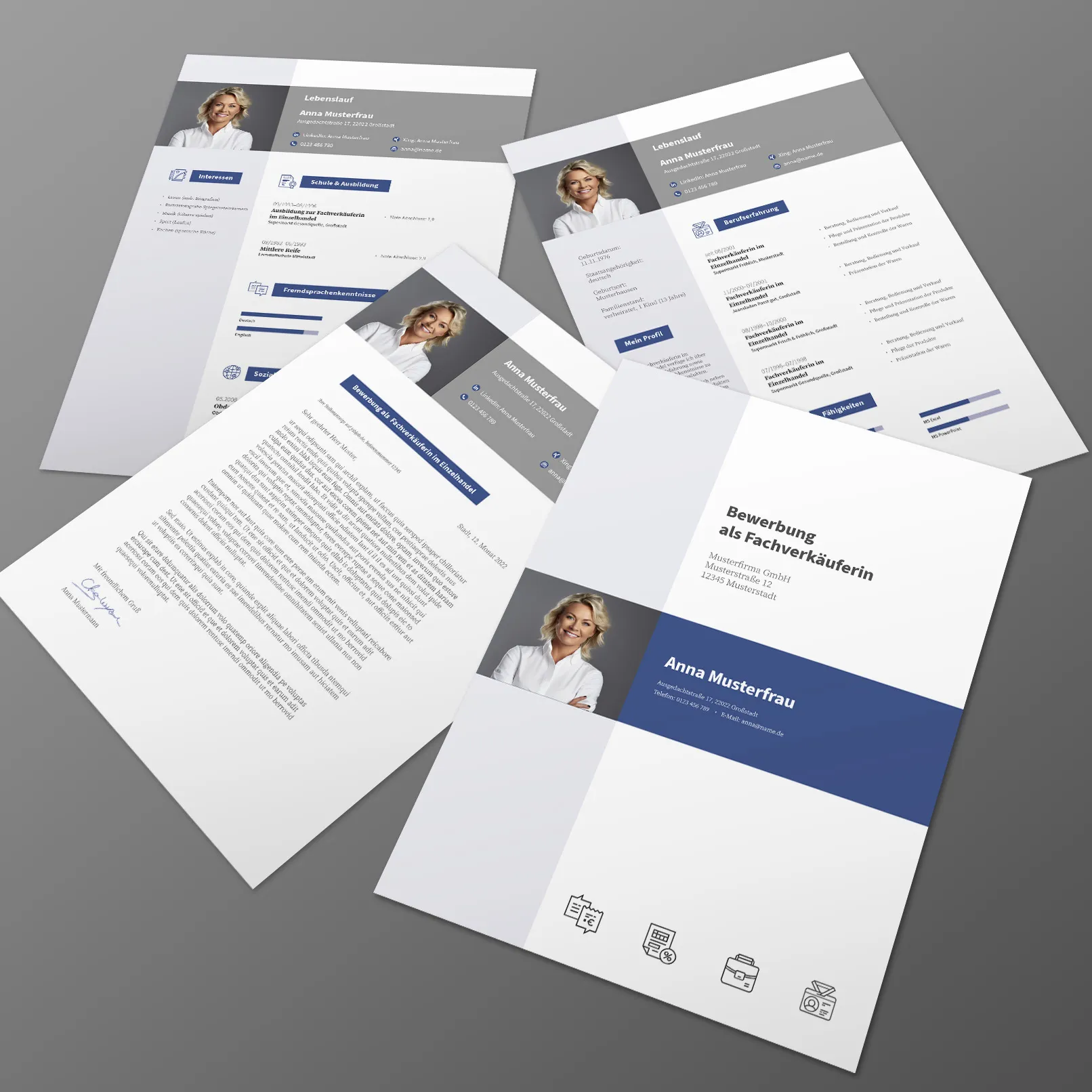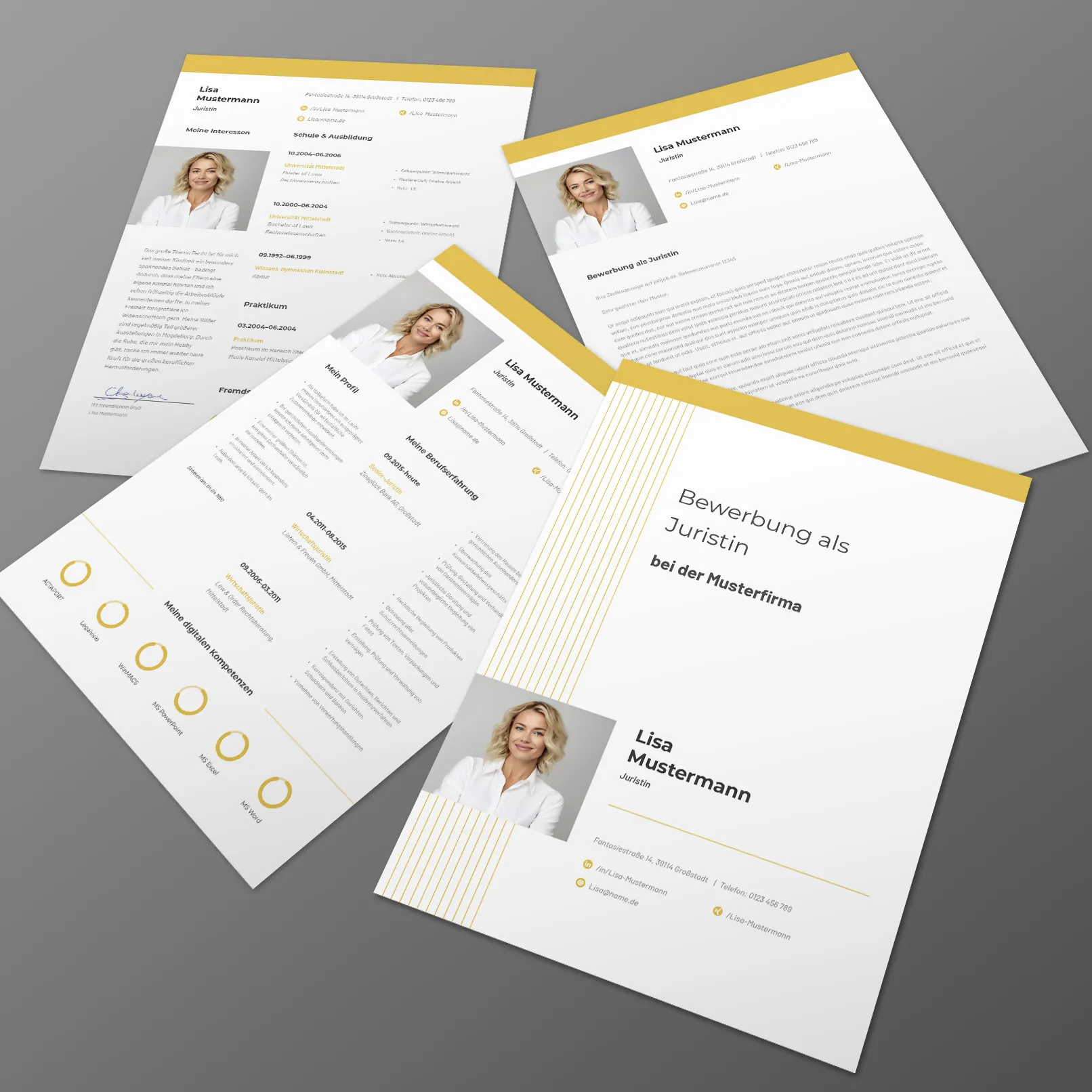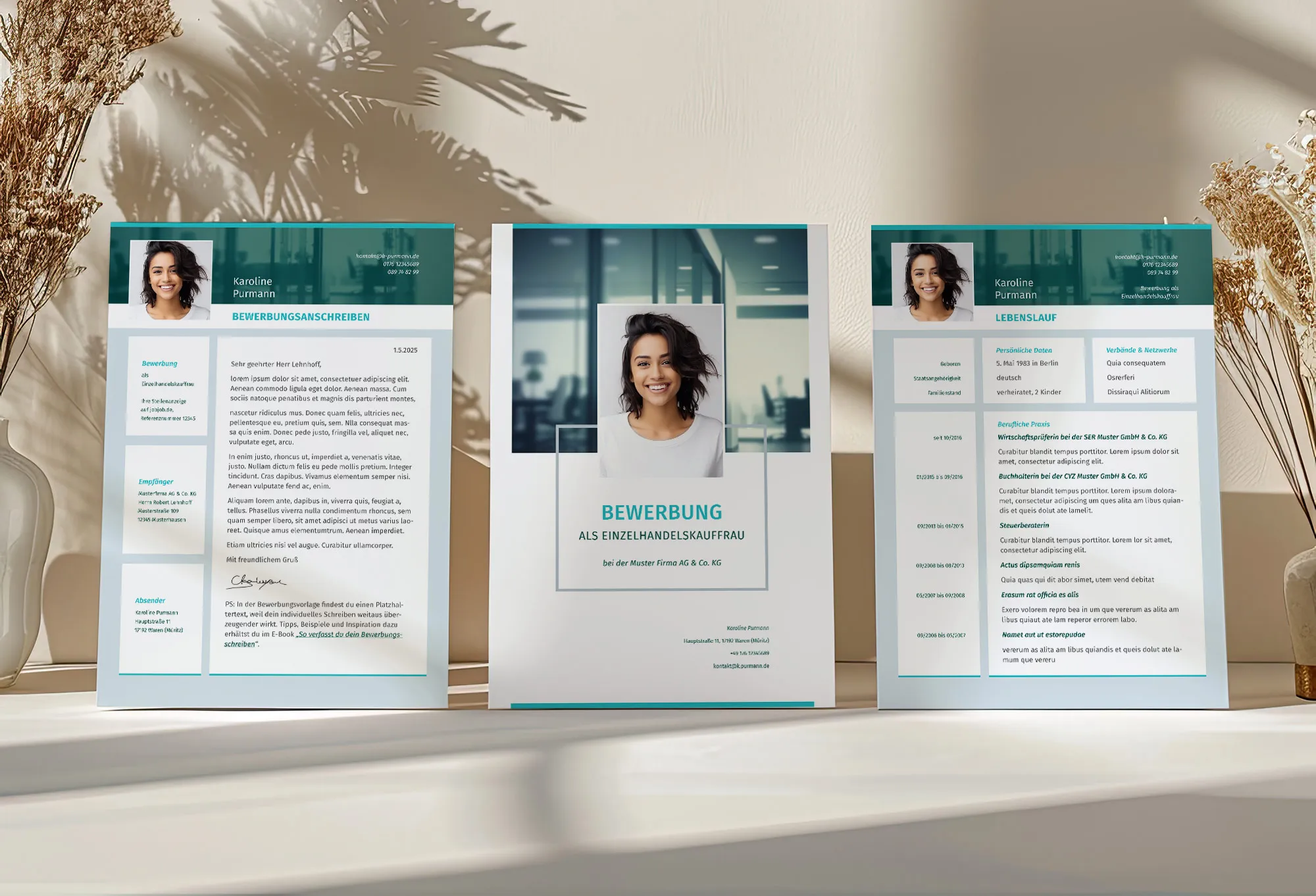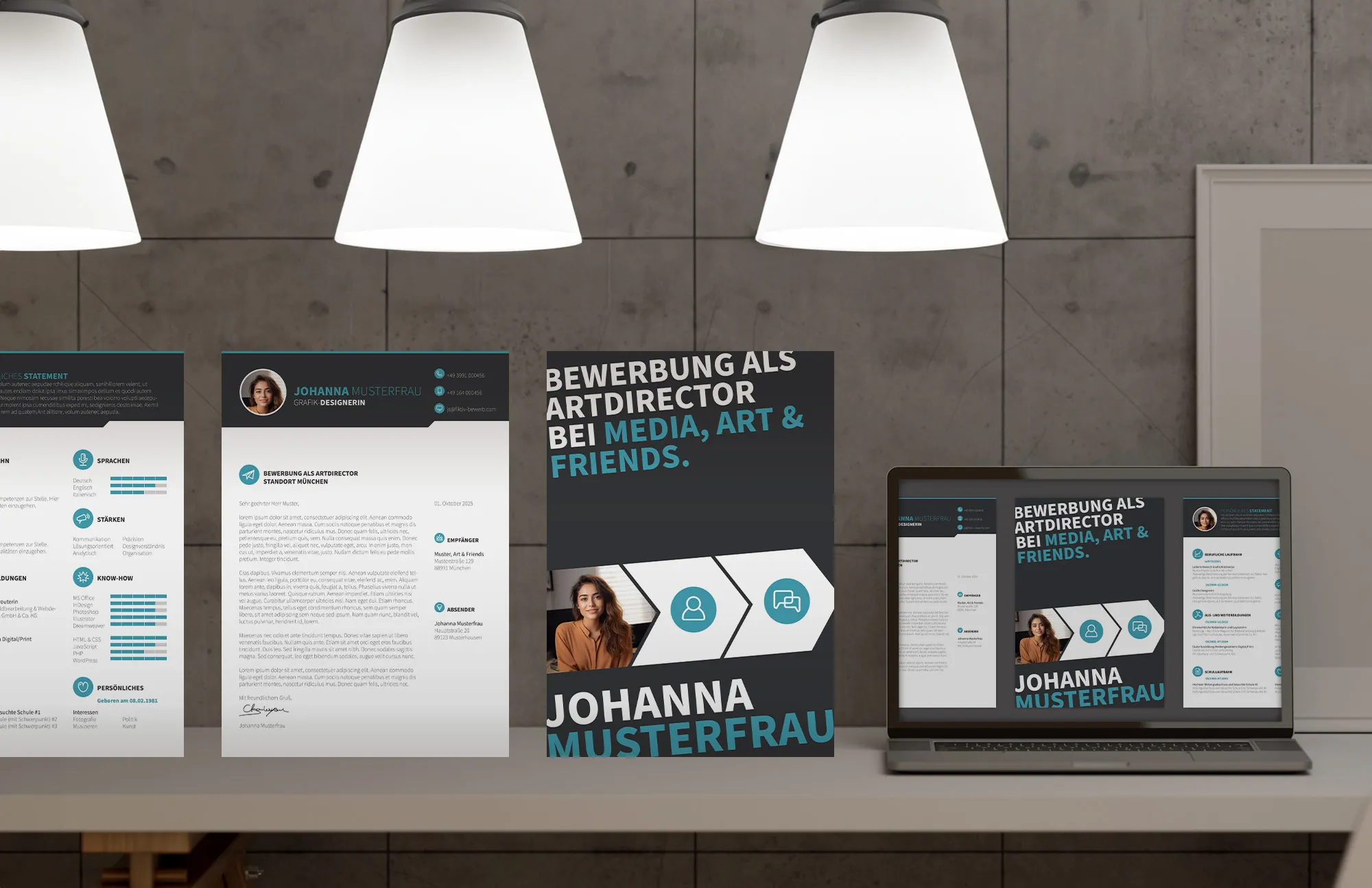The secrets of the perfect application
When you write an application, you are faced with a groundbreaking challenge. It's about presenting your skills and experience in a way that precisely matches the needs of the company and the vacancy.

The application is extremely extensive in terms of topics, but I will try to give you the most important ideas and tips in a clear and therefore easily digestible summary. This way, after reading this article, you will know what to write and how to write it to increase your chances of being invited for a job interview .
Tips for structuring your application and presenting the information in it
1. reduce the facts
From the data you have collected, select only the most important ones that emphasize your professional and personal qualities. For example, you don't have to mention every detail, but only what is really important for the job you are applying for.
2. stick to the goal
Formulate your application with a specific job or industry in mind. Find out about the employer's requirements and adapt your application accordingly. Make sure that your application contains the keywords of the job advertisement. And always remember that the application is not just about you, but about what the company stands to gain from hiring you.
3. structure the information
Structure your CV so that the information is easy to read and understand. The sections should be clearly highlighted and the data should be organized chronologically or by relevance. Not every internship is important. Give more space to the areas that are important for the vacancy. Give less space to stations in the CV that are not important for the position.
4. review and edit
When your application is ready, don't forget to revise and proofread it. Check for spelling and grammatical errors as well as coherence and clarity of presentation. Check that the spelling of the company and the contact person is correct.
More about the structure of the application
Around a third of applications are not even looked at more closely due to incomplete data and a disorganized structure. The classic application consists of the following sections:
Personal information
This is where you enter your basic personal information, e.g. your name, contact details and date of birth.
Work experience: This section contains information about your work history, including previous jobs, positions and length of employment.
Education and additional training
This section lists all your educational institutions, degrees and certificates as well as relevant courses and seminars you have attended.
Qualifications and skills
In this section you list all your professional skills, knowledge and qualifications that could be relevant to the job you are applying for.

Interests
List your hobbies, pastimes and other activities that show you at your best and emphasize your personality traits.
However, if necessary or if you have little experience, which is often the case for students or young professionals, you can add the following information:
Education: All degrees, courses, training and academic projects should be listed here.
Projects and portfolios: If you have done any projects or work during or outside of your studies, you can create a separate section summarizing them and their results.
Skills and competencies: In this section, you can highlight your key skills and abilities that may be useful for your future work, even if you have limited experience. These can be technical skills, software knowledge or soft skills such as communication skills and time management.
Honors and awards: Here you can list any awards, prizes and recognitions you have received during your work or studies. Your award for best player in bowling doesn't quite fit because it only says so much that you're a people person. An award for winning the Math Olympiad, on the other hand, is valuable because it says something about your intelligence and discipline.
Career goals: In this section, you can describe your career ambitions and future goals so that the employer understands how you want to progress within the company.
References: If you have references from previous employers or supervisors from your studies, you can include their contact details or simply their availability in a separate section.
Additional information: In this section, you can provide other useful information that may be important to the employer, such as foreign language skills, volunteer work or membership in professional organizations.
Tailor your application to specific job advertisements
The better your application is tailored to the requirements of the job, the more convincing it will be. For most employers, a detailed description of your professional experience is the basis of a good application.
In addition to key qualifications and work experience, it is important to highlight your achievements and successes in previous jobs or projects.
This helps to catch the attention of recruiters and confirms your ability to achieve results. For example, describe specific projects you've been involved in and their positive outcomes.
Tips and requirements for the application photo
In some countries, such as the USA or Canada, the application photo is not accepted in order to avoid discrimination, whereas in Europe it is standard. In China and Japan, a serious application photo is almost indispensable. In Germany, the application photo is not obligatory, but is still welcomed by most employers.
Here are a few tips on how you can improve your photo
Background
Choose a calm and neutral background that does not distract from your face. Avoid too bright or complicated patterns in the background.
Clothes
If you don't know what to wear, a classic shirt and pants combination is suitable for almost any situation. Avoid too bright colors or too flashy clothes.
Hairstyle
Comb your hair and make sure it looks neat. If you're a girl, you can tie your hair into a tight ponytail to look neater and more professional.
The photo is usually placed at the top of the application on the resume and/or cover letter. You can also place it on the cover page.

Create an application for students
Students often have little or no work experience. To make your application attractive, it is important to highlight your personality, strengths and skills. It is helpful to indicate interests and hobbies that are directly related to the desired job or internship.
It is recommended to use a tabular format to make it easier to read. It is important that the following elements are included:
- Personal and contact details
- Training in an educational institution
- Internships or part-time jobs, if applicable
- Special skills
- Personal interests
Many European universities also offer their students the opportunity to complete an internship during the semester break. This is a good opportunity to gain work experience and improve your application documents.
Special features of applying in English
If you decide to go abroad, you will probably have to submit your application and cover letters in English. It is important that you pay attention not only to the differences between the German and the English application, but also between the Curriculum Vitae (CV) and the Resume (CV).
The main differences between the German and the English application are in the following categories: Photography, Personal Information, Structure and References.
The American application is described as an information sheet that summarizes the applicant's basic data and skills on one page (never more, except for extensive professional experience). It consists of personal data, applicant profile, skills, education, work experience and references.
Unlike the normal CV, the CV is more detailed. However, previous professional experience is not organized by time, but is presented in general sections, as in the CV. The CV contains personal details, career goals, area of specialization, professional experience, education, knowledge and skills.

Adding hobbies to the application
Opinions often differ on the inclusion of hobbies in the application. Stating personal interests is not mandatory. However, your personal hobbies can be of interest to recruiters as they say something about you as a person, symbolize certain soft skills and help to assess the fit between the company culture and the applicant. It can also be an advantage for the company to know about your hobbies.
Hobbies in team sports, for example, contribute to better teamwork. If your hobbies match your colleagues' interests or complement their skills, this creates a more harmonious and productive team environment. Mutual respect and support in developing interests outside of work can strengthen cohesion between colleagues and help build friendly relationships. Ultimately, this can lead to higher motivation and better overall team performance. Also, hobbies such as weightlifting or marathoning demonstrate discipline and perseverance, which are desirable traits for employees.
Gaps in the application
When it comes to lying ... Temporary breaks in employment - whether self-inflicted or not - are often exaggerated in job applications. Gaps in your CV are completely natural. The important thing is to be able to deal with them constructively.
Incidentally, we only talk about temporary gaps if they last longer than two months. In this case, it is important to explain the reason for the break. For example, a career change can be successfully interpreted as a desire for something new.
If you had to interrupt your career due to a prolonged illness, you should mention this in your application. However, it is not necessary to disclose the details of the illness.
In addition to using positive language, it is important to emphasize the importance of this time. During the months you were unemployed, you learned many soft skills and improved your language skills. But other forms of break can also be used productively by exploring new areas of knowledge or acquiring new skills. I will publish a separate blog post about gaps in your CV, as this topic deserves more in-depth treatment.

Ready-made application templates on TutKit.com
In this article, I have described in detail what a CV should contain and given tips on how to write it. In addition to this information, it is essential to format and structure the document correctly to avoid mistakes and make it more attractive to a potential employer.
Many people face the problem that their CV is not formatted correctly, which can turn it from a potentially good document into an incomprehensible jumble of information. Our company offers you ready-made templates to help you avoid such problems. All you need to do is insert your data into the appropriate fields and you'll have a structured and stylish document. The application design will make you stand out from the random-looking applications of your competitors.
Our designers have taken into account all the rules and requirements for writing a CV, ensuring not only the correct arrangement of information, but also an attractive appearance. Visit TutKit.com and find your dream job in no time!
From Vitalii Shynakov
